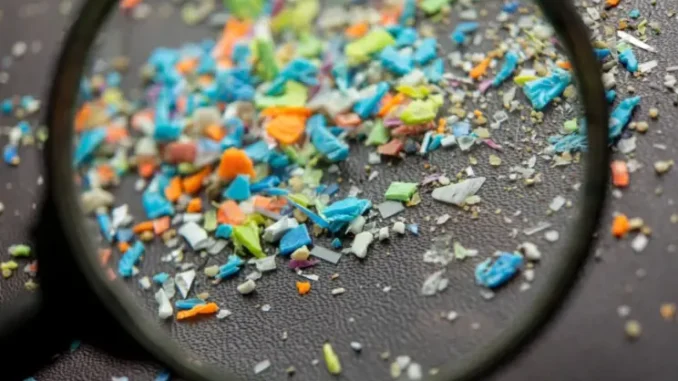
Lara Murray-Sterzel, Editor-In-Chief
A very important health alert has been sweeping the news. Earlier this month, at the University of New Mexico, a shocking discovery was found about microplastics, particles that make up items such as our plastic containers, plastic food wraps, plastic bags, water bottles, and even cosmetics, causing future harm to the human brain. According to the study, the amount of micro plastics found in the average brain was equivalent to the size of a plastic spoon. Over 450 million tons are produced over the world and our productivity has risen in the past thirty years.
This study involved reviewing fifty autopsies between 1997 and 2024. Researchers examined the organ tissue of the human body, including the brain, liver, and kidneys. Out of the two, the brain had the most microplastics contamination. Microplastics are broken down from plastic waste across the planet. Unknowingly, people consume them in food, water, and even breathing. The most common plastics found in the study are particles called nanoplastics and polyethylene, which can only become visible under a microscope.
Researchers have even examined people with dementia and found alarmingly high levels of plastics in their brains, but they don’t know if it was caused by the microplastics. From 2016 to 2024, microplastics went up 50 % in the brain and liver.
One of the ways researchers share to reduce exposure is to switch your plastic containers over to glass containers. The second way is to use your water bottle and stop using microwavable plastics. The third way is to use recyclable bags and wear clothes made with natural fibers, which, as opposed to synthetic fibers can also help the environment. The fourth way is using wooden cutting boards as opposed to plastic ones and avoiding ultra-processed foods. And the last way is to be careful where you store your plastics, as when plastic is heated, it can release particles into the food and water. As these are the early stages of the study, more research into how to keep yourself safe from plastic exposure will be looked into.
This discovery has left people in shock and focused on their health. Every news outlet and website has been consistently updating the public about any discoveries since. As of now, researchers don’t know the full health impact microplastics will have. More research needs to be done to understand if they’re linked to certain diseases like strokes and heart attacks. Researchers also need to examine the brain closely to understand how microplastics enter the brain. In the meantime, people are now calling for new policies and the disposal of plastic waste in our country. Some are searching for a more recyclable approach to the plastic waste issue. As it’s been seen before, waste can be recycled into something entirely different and new, like furniture and clothes. If the call for change is strong enough, the country may see some big changes on the way.
Leave a Reply